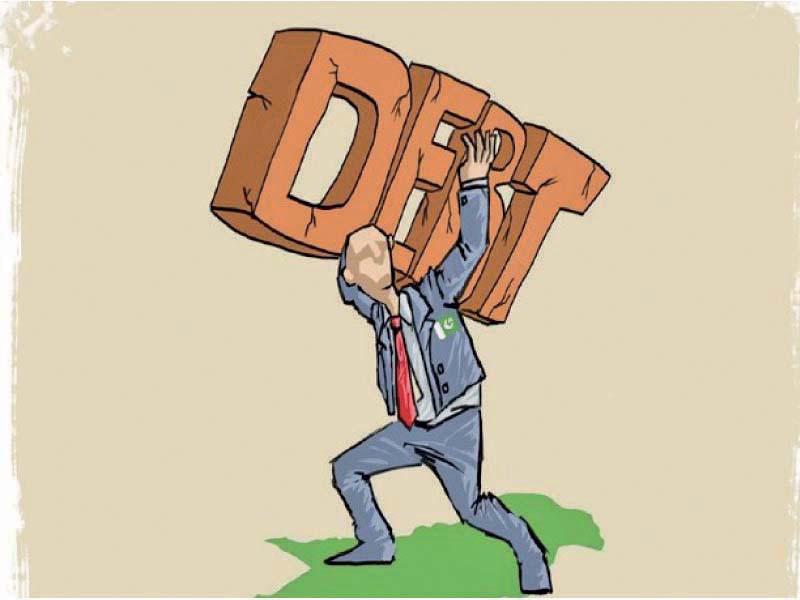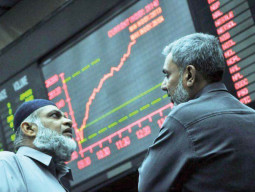
The government will borrow a total of Rs3.025 trillion through multiple auctions of three-month to 20-year treasury bills and sovereign bonds. Around 66% (Rs1.985 trillion) of the debt will be utilised to retire the maturing debt taken from banks, the State Bank of Pakistan (SBP) reported.
The remaining Rs1.040 trillion will be spent to overcome the shortfall in government expenditures.
"The additional debt will apparently be utilised to fight the Covid-19," Next Capital Managing Director Muzammil Aslam said while talking to The Express Tribune.
The cash-strapped government has recently announced a relief package of Rs1.2 trillion for industries and daily-wage earners to support them under the lockdown imposed in late March to contain the spread of coronavirus in the country.
Separately, the Economic Coordination Committee (ECC) of the cabinet approved a Rs50-billion agricultural package on May 13 to provide subsidy on fertilisers, pesticides, cottonseeds and withdrew general sales tax (GST) on tractors.
The government has also announced that it will pay electricity bills of small and medium-sized enterprises (SMEs) worth Rs50 billion. It needs funds to stimulate the economy and borrowing from banks is one of the options amid low tax and non-tax revenues.
The circular debt in the power sector is another challenge which also forces the government to borrow funds to ease the liquidity crunch faced by energy firms like oil marketing companies and power producers.
New wave of inflation
Aslam, however, warned that subsidies and relief packages for industries and agriculture may trigger a new wave of inflation in the absence of enhanced industrial and agricultural production.
"Too much money chasing too few goods may increase inflation if the production remains suspended," he said.
The SBP said the Ministry of Finance had planned to raise Rs2.275 trillion through multiple auctions of three to 12-month treasury bills between May and July. Around Rs1.813 trillion will be utilised to retire the maturing debt by July.
It has planned to raise Rs225 billion through auctions of five-year government of Pakistan Ijara Sukuk (Islamic bond). Meanwhile, Rs71 billion will be utilised to pay off previous debt.
It will borrow Rs375 billion through auctions of three to 20-year Pakistan Investment Bonds (PIBs) at a fixed rate or return ranging from 9-11% against the maturing debt worth Rs101.4 billion from May to July.
Besides, the government has planned to raise Rs150 billion through auctions of 10-year PIBs at a floating rate of return. The SBP notification announces a coupon rate of 14.0499%.
Under the tenure of Pakistan Tehreek-e-Insaf (PTI) government, the domestic debt has increased by a staggering Rs5.933 trillion, or 35%, in two years to Rs22.937 trillion by the end of March 2020 compared to Rs17.005 trillion in June 2018, according to the central bank.
The growth in debt came in the wake of low collection of revenues. A large number of people, feudal lords in the agriculture sector and industrialists in the informal sector do not pay due taxes. The government largely earns revenue through indirect taxes.
The overall revenue collection surged around 40% in the first half (Jul-Dec) of current fiscal year ending June 30, 2020. The economy was ready to take off as many economic indicators had returned to the growth path.
However, the coronavirus badly hit economic activities in the country. The economic growth is estimated to be in the range of negative 0.5-1.5% in the current fiscal year after a gap of 68 years.
Published in The Express Tribune, May 16th, 2020.
Like Business on Facebook, follow @TribuneBiz on Twitter to stay informed and join in the conversation.



1730959638-0/trump-(19)1730959638-0-165x106.webp)













COMMENTS
Comments are moderated and generally will be posted if they are on-topic and not abusive.
For more information, please see our Comments FAQ